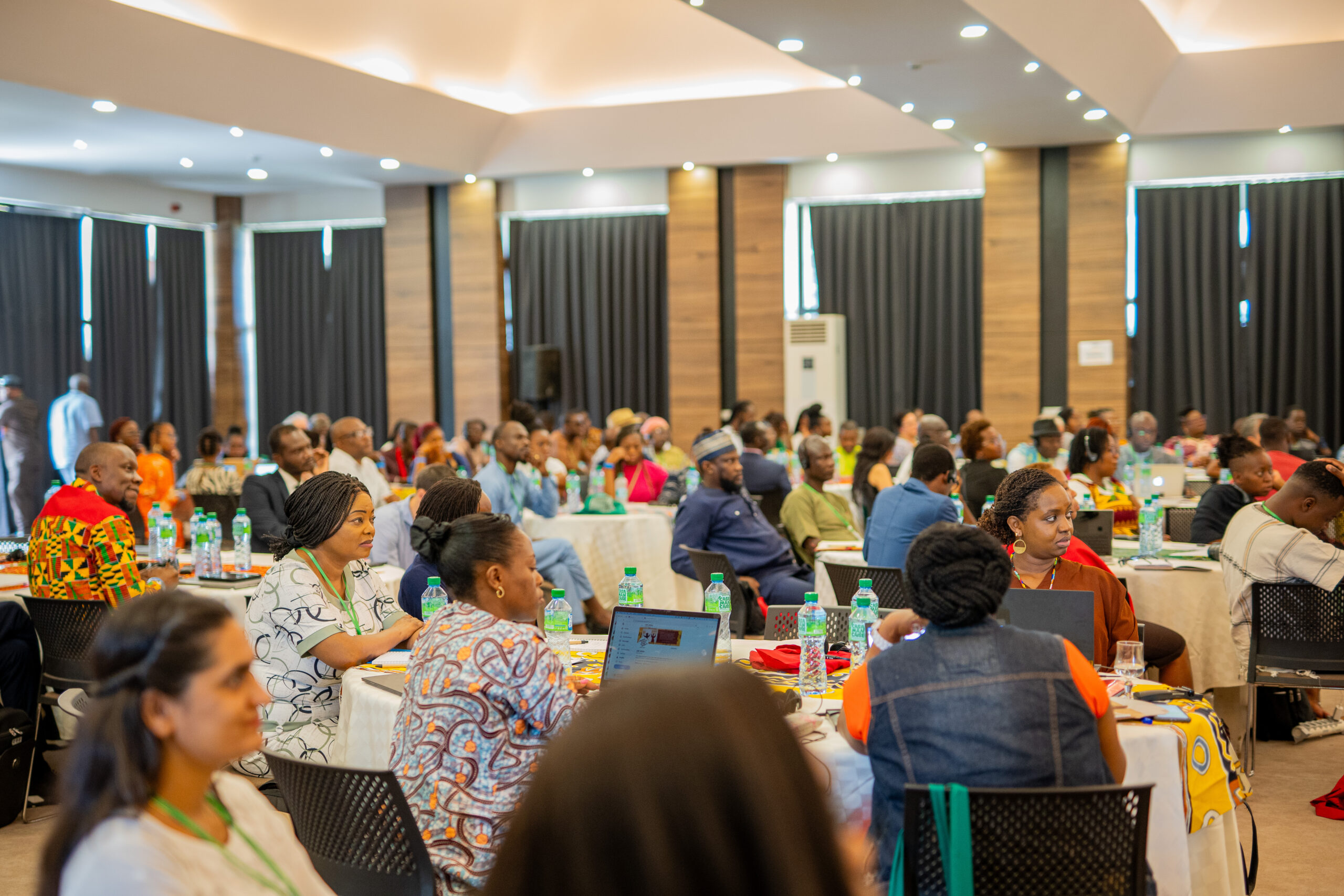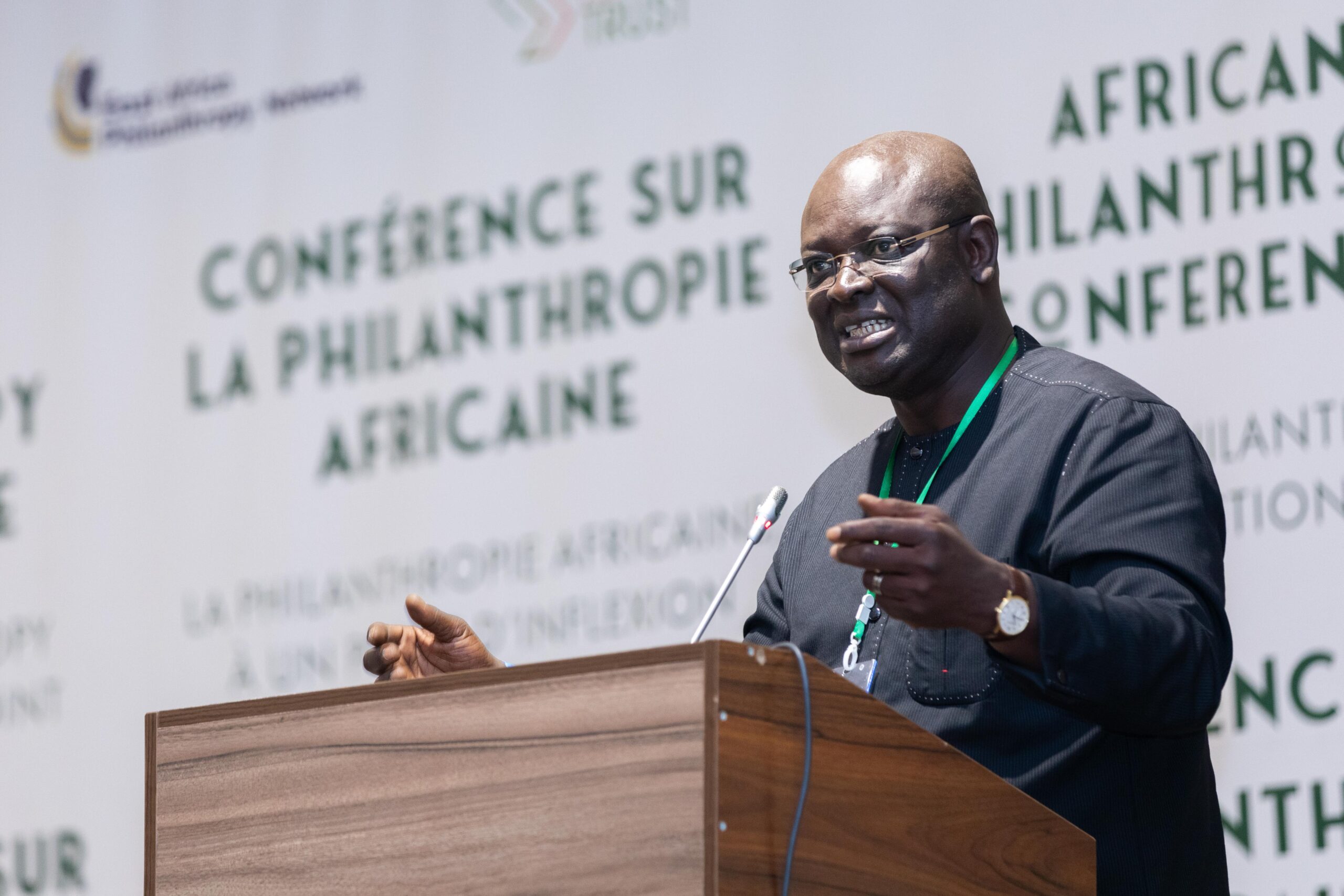Mamadou covered a wide range of topics, including the COVID-19 pandemic, and the profound impact these have had on vulnerability and the need for resilience, amongst many others. Mamadou used the glaring numbers, namely African philanthropists’ $269 million contribution to pandemic relief efforts, as evidence of philanthropy’s undeniable influence on the continent’s trajectory. While public sectors grappled with inequality and corporations adjusted to economic slowdowns, philanthropy stepped up and showed that it could offer solutions for communities across the continent.

This offered a segue into discussing the importance of organisational and personal leadership, as well as the need to leverage resources and invest in knowledge and skills. Alongside the combined efforts of the public and private sectors, the opportunity to learn and rethink practical methods and approaches have led to this inflection point.
Having highlighted these relevant cases, Mamadou issued a clear call to action for delegates to practice organisational and personal leadership that prioritises the mandates of their institutions, while protecting the future of democracy and the civil society sector. His call to action dovetailed into an opportunity to profile the importance that leveraging resources and investing in knowledge and skills can offer. Through such mechanisms, the philanthropic sector and institutions are better able to tackle pertinent and future challenges. He argued that the philanthropic sector has a vital role to play in addressing the continent’s most pressing challenges, and that it is essential for philanthropic institutions to be led by individuals who are committed to democracy and civil society.
“Stakeholders now demand innovations that go beyond mere partnerships to ensure sustainable positive change and reduce vulnerabilities.”
African philanthropy fulfilled through family foundations, high net-worth individuals and corporate foundations holds a unique ability to influence the inflections that have led the sector to where it stands today. With the African narrative of community and collaboration, Mamadou highlighted the importance of ensuring a balance of power dynamics between givers and recipients, emphasising how this offers sustainable measurement and celebration of gained impact. Progressive practices in the sector allow for the inclusive and long-term resolution to experienced challenges, which foster accountability and transparency while supporting the growth of evidence-based policy and regulation.
To conclude his address, Mamadou considered the four thematic dimensions for the future of African philanthropy and how delegates can implement practice across these.
- People: Focusing on enhancing skills, especially in leadership and relationship management.
- Power: Reconsidering power dynamics between donors and beneficiaries, with local ownership and participation being essential.
- Practice: The employment of methods and tools that adapt to the changing landscape, especially in the age of the 4th Industrial Revolution and artificial intelligence.
- Policy: Shifting away from ad-hoc approaches and embracing systematic, adaptable frameworks.
While thanking delegates, Mamadou reiterated and encouraged collective action between governments, private organisations, and civil society; through which the continent’s agency can remain revitalised as we navigate the future for Africa.
“But I pledge this, to this community to proactively collaborate to strengthen our organisations and increase their ability to make an impact. I hope that I have provoked thought by profiling issues that I think, if we don’t address, will limit our impact.”
Click play to watch the recording of Mamadou’s keynote address
====
About
The 4th African Philanthropy Conference was hosted under the theme of “African Philanthropy at an Inflection Point”. Through this, the organisers of the convening hoped to stimulate conversations and participation from an audience of practitioners, researchers and leaders in the philanthropic sector.

